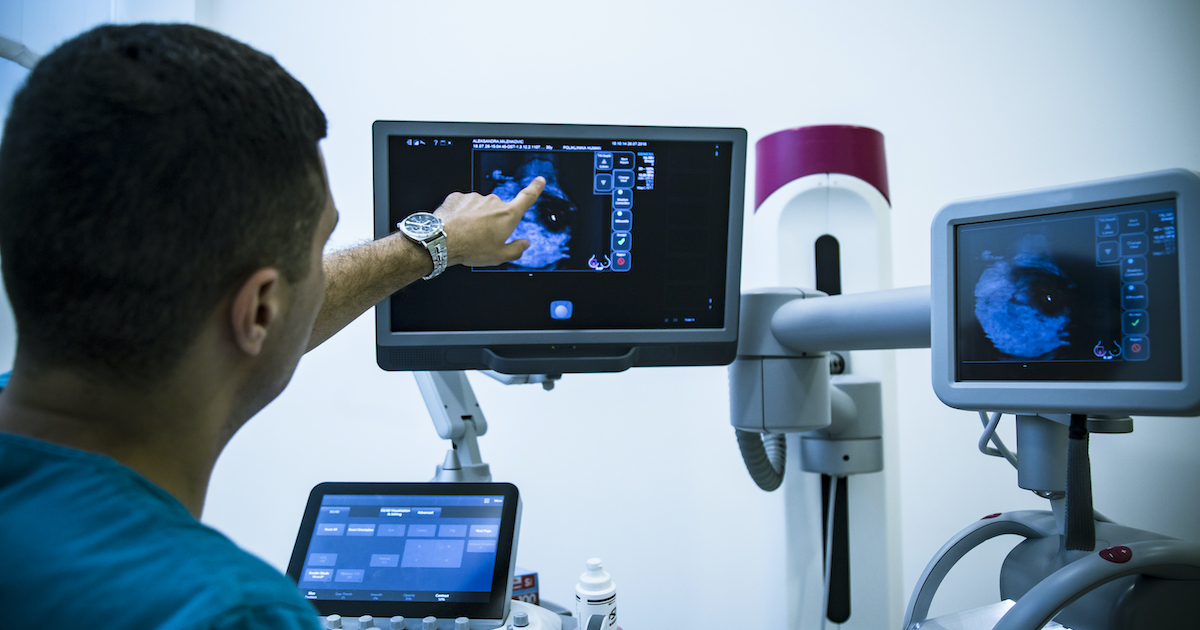
Three new partnerships aim to use artificial intelligence and cloud technologies to enhance precision medicine, put a lasso around AI-driven and other healthcare cyber risks, and improve care delivery workflows.
Memorial Sloan Kettering Cancer Center said it will collaborate with Amazon Web Services to unlock data and deliver unprecedented oncology care by using artificial intelligence to connect findings across its clinical research. Also in partnership with AWS, Censinet launched advanced AI tools secured in a virtual private cloud that could help organizations increase their use of AI to better predict, prevent and protect against cybersecurity risks.
Rounding out our coverage this week, the Cleveland Clinic announced it will roll out ambient recording for emergencies and other electronic health record enhancements with the Ambience AI platform.
Ending cancer for life with AI
The MSK Cancer Center announced Monday that it partnered with AWS on what it calls a groundbreaking effort to incorporate deidentified cancer research and treatment data accrued over a century.
The goal is to drive cancer research and personalize treatment by building a high-quality, up-to-date longitudinal data resource that will also serve its research partners as a source for validating and improving cancer research.
It will accelerate the pace of developing lifesaving treatments that improve patient outcomes, Dr. Anaeze Offodile II, MSK’s chief strategy officer, said in a statement.
“A critical enabler of this will be harnessing the scale and expertise of the larger Amazon organization to advance our processes and infrastructure related to AI, inclusive of large language models,” he noted.
Dave Levy, AWS vice president of worldwide public sector and healthcare and life sciences, called the collaboration “a powerful engine for innovation.”
“MSK and AWS have a shared vision for applying technology to improve patient care and experience, and we’re excited about how this collaboration will accelerate patient-centered discovery and precision medicine for cancer,” he added.
AI for cyber risk management
Risk visibility – the degree to which organizations can see their digital vulnerabilities – is becoming more complicated.
With ransomware attack incidents reaching epic levels in the healthcare sector, and AI adoption increasing, organizations’ security teams are pressed to protect care delivery from disruption, Ed Gaudet, Censinet CEO and founder, said in a statement Monday.
“We’re enabling healthcare leaders to manage cyber risks at scale to ensure safe, uninterrupted care,” he said.
Built on AWS’s AI infrastructure, the new proprietary suite of tools – available on-demand to customers of its RiskOps platform – aims to transform healthcare organization’s governance, risk and compliance and improve cybersecurity risk management by leveraging a secure cloud environment.
They are hosted in a dedicated VPC within AWS infrastructure, so customer data is securely contained and not exposed to the public internet or accessible outside the private cloud’s boundaries, the company said. Isolation prevents external access but also secures customer data from being accessed by any third party or large language model for any purpose.
Offering doctors genAI to reduce burnout
Cleveland Clinic announced Wednesday that it is making Ambience Healthcare’s AI platform for documentation, clinical documentation integrity and point-of-care coding available to providers.
Using AI scribes to drive digital transformation, health systems can enable their providers to better engage with their patients, save time and alleviate their administrative burdens.
“The promise of AI in healthcare is that it will enable us to care for patients with a higher level of safety and quality, and a better patient and caregiver experience,” Rohit Chandra, the health system’s chief digital officer, said in a statement.
“Our clinicians reported their enjoyment with more face-to-face patient interaction, and that the software provided detailed notes that improved care coordination across specialties,” Dr. Beri Ridgeway, enterprise chief of staff, added.
“Importantly, they also felt less burnout.”
Cleveland Clinic said ambulatory providers will have the ability to try the software, but will not be required to use it. Patients will also be told before the AI tool is used and can opt-out, the clinic said.
Last week, Ambience said that since John Muir Health rolled out the technology across its facilities, it has seen a major impact on clinician burnout. More than 65% of its clinicians across 15 specialties have been using the platform.
Andrea Fox is senior editor of Healthcare IT News.
Email: afox@himss.org
Healthcare IT News is a HIMSS Media publication.
